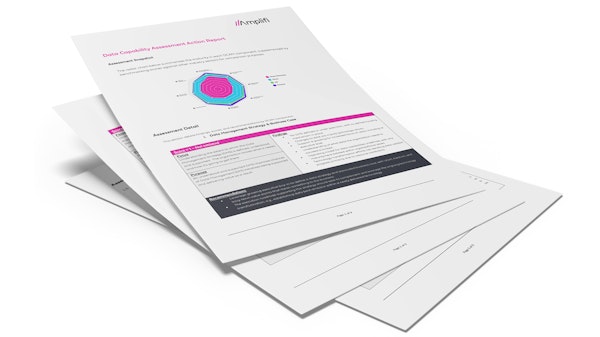So, what is a data product?
A data product is an owned and governed trustworthy data asset, designed to solve a specific problem or deliver a specific value (e.g., customer segmentation, sales forecasting, single view of product). They’re treated like a software product; monitored, versioned, and continuously improved.
Data products include their own data pipeline, transformation logic, documentation, and governance and crucially are available to be discovered and used by all, subject to access controls, through a marketplace.
Why do they matter?
Data products offer many key advantages to data consumers and organizations managing their data. They offer solutions for high data quality and trust, faster routes to insights and better alignment with business needs.
The marketplace gap
One key insight from the summit, and something that persisted in multiple sessions, was the immaturity of the marketplace element. It’s important to mention that a data marketplace is very distinct from a data catalog. A data catalog is used to help people find trusted data products, whereas a marketplace serves as a platform where organizations can access and share data assets, including data products. This capability is especially critical when building applications, delivering insights, and enabling data-driven business processes.
There is excitement and anticipation around data products and the marketplace; vendors are building products, and they are adding value with promising results. However, the struggle happens when it’s time to make them easily available or discoverable.
How to develop data products in practice
If Data Products are something you’re trying to develop and achieve, we can help either from the bottom up, or top down.
If you don’t have a data catalog yet, then we can help build the foundations, profiling data assets, checking quality and lineage, and building trust in your data. From there we can work with you to group and shape those assets into meaningful Data Products that can be endorsed and reused across the business. Our experts can also aid with specific domain driven initiatives, such as your supply chain, and build those products up from the ground.
At Amplifi, we consider building up a data catalog as a “no regrets” activity. It’s an efficient way to:
- Find the data assets in your business
- Understand how they move around
- Document them and apply to them to relevant business use cases
- Once you have Use Cases, gather assets into Products
Another method we can help with is looking at your business goals and working backwards to identify the data products that you need to support them. For example, if a retailer wanted to increase basket size, they would need a data product that tells them what the size of baskets is, and another to identify the cross-sell opportunities for products. We help you define those use cases, determine what data is required, and then locate, shape and deliver it, no matter how granular.
Crucially though, data products need to be trustworthy, consistent and governed. Policies, endorsements, ownership, and ongoing quality management, it all matters. This is what Amplifi integrates from the start. We support you across the whole lifecycle from design and delivery to governance frameworks that grow and scale with your organization.
We're here to help
Our data expertise is built on a foundation of MDM and PIM excellence, where we have helped many organizations build trustworthy, reusable master data products in multiple domains, such as Product Data Products and Customer Data Products.
Our team of skilled strategists and creative thinkers develop scalable solutions that deliver measurable results. Approachable and focused, we bring fresh perspectives to enterprise challenges, working alongside you to create solutions that fit seamlessly to your business needs. Our work ensures you see real progress where it matters most.
With Amplifi, you’ll gain a partner rooted in expertise, flexibility, and a shared commitment to achieving your success. If you’d like to discuss Data Products or any aspect of data management with our experts, get in touch with the team here.
Unsure on what your organization needs, your current capabilities or where to get started?
Make use of our Modern Data Ecosystems Health Check.
Amplifi offer a range of capability health checks designed to assess your readiness for various aspects of data management. Our Modern Data Ecosystems assessment can help your organization understand its current maturity, identify capability gaps, and uncover the practical steps needed to design, build, and scale trusted data products within a modern data ecosystem. Learn more and request your health check below.




